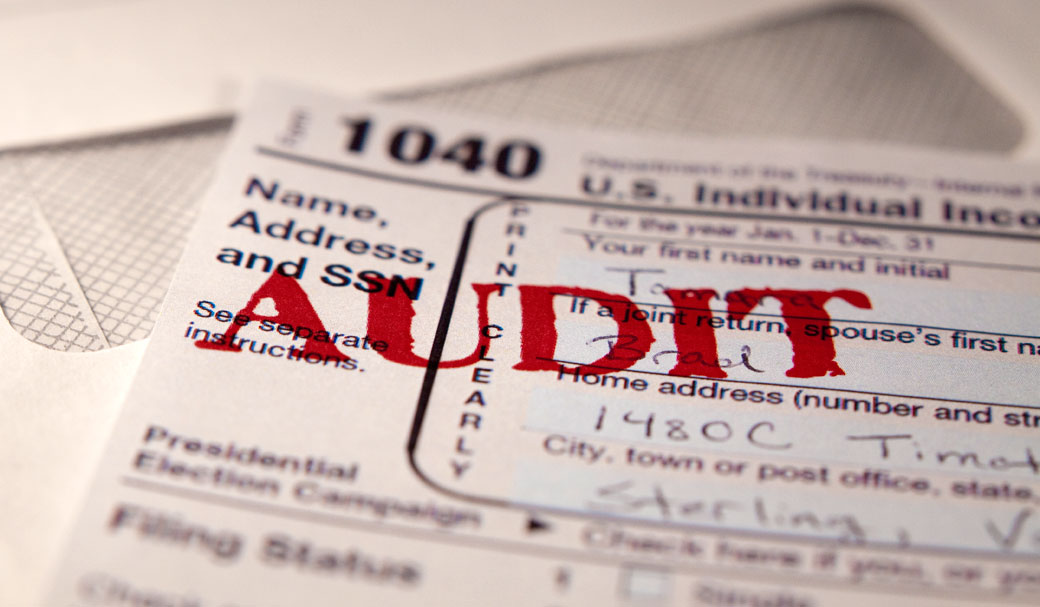It seems as if there are some common trends pertaining to the IRS and the taxpayers they choose for audit. Here is a list comprised from the educated opinions of the Certified Public Accountants at Lavin & Associates.
1. You work for yourself and claim a loss on Schedule C. Business owners claiming a loss on their Schedule C too much or too often can often run into a problem with the IRS. Mixing business with pleasure is also often the culprit for running into a jam on the Schedule C. Your family room can not double as your home office. Your vacation to Hawaii is not a business trip.
2. Claim outsized Deductions. The IRS says you can deduct up to 50% of your adjusted gross income. Herein lies a problem. There is a lot of grey area when it comes to deductions. Claiming large donations to your church or to the Salvation Army on your return may invite one of those dreaded letters with the IRS logo on it.
3. Be wealthy. It is a proven statistic that taxpayers considered rich are more likely to receive scrutiny from the IRS. The theory is turning over the stones of the rich is likely to uncover larger amounts of buried treasure. Especially as of late, the percentage of the rich being audited has increased.
4. Use a shady tax preparer. It is always important to know the reputation and credentials of your tax preparer. A sleazy preparer’s clients are more likely to be audited in the attempt of the government to try to shut down that particular practice, firm or entity. So hire L&A. We are not sleazy.
5. Big time Unreimbursed Employee Business Expenses. A commonly confused item here is writing off commuting costs and ordinary work clothes. Deducting off-site travel expenses and uniforms are allowed but be careful. The IRS may ask for back-up paperwork and receipts for proof of these expenses.
6. Omitting Income. If you receive a 1099 or a W-2 from an employer or entity that has provided you income, you are required to report it. The IRS is good at matching these tax documents to your return to ensure the numbers add up. Failing to report all income is a sure way to invite audit.
7. Deductions ending in too many zeros. Expense amounts are hardly ever round numbers. You get to the cashier at the grocery store and the amount is $126.87 or $28.98. It’s rare these amounts are ever round numbers. So your expenses should not be round numbers either.
8. Making careless errors. Spelling your name wrong or entering your social security number incorrectly is a no no. Review your return and review it again to avoid careless mistakes. Mistakes on your return are ultimately red flags for the IRS.
9. Boasting. It is never a good idea to brag about your tax scenario around co-workers or anyone you don’t trust. The same holds true for any phone/email conversations. Your taxes should never be mentioned on Facebook or Twitter. You would think this isn’t worthy of mention because it goes without saying but many taxpayers invite an IRS audit by bragging by some avenue.
10. Claiming a Hobby Loss. A hobby loss can be claimed so long as your are trying to generate a profit with the hobby. Some of examples of these hobbies include dog showing and comic book collecting. Claiming losses repeatedly without showing any evidence of changing your hobby’s methods may invite IRS scrutiny.
With all these “invitations” to an audit party, it is still possible to be selected at random for an audit. Our clients are very well protected on our end because each return is reviewed and analyzed by multiple CPA’s with decades of experience. An audit is a serious matter and should be dealt with by someone with professional experience. If you can afford to hire a professional for audit representation, do it and don’t look back.


